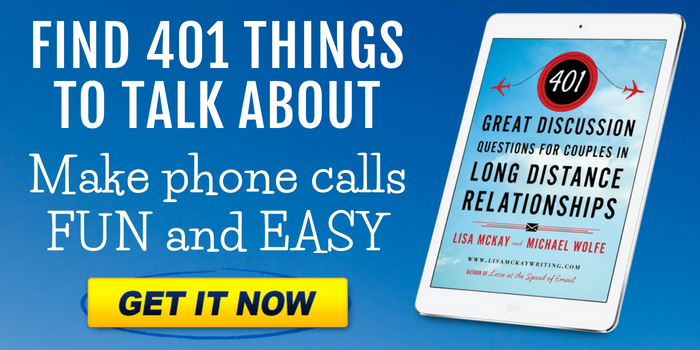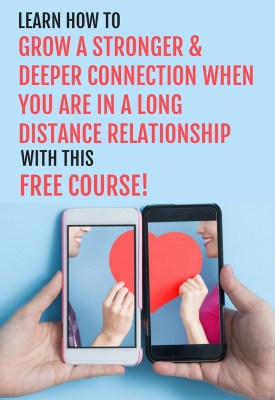“If you don’t cook me pizza for dinner,
I’m not going to love you anymore.”
This line was delivered to me convincingly last week… by my 5-year-old son. He is usually cuddly and cruisy and all sorts of adorable. But recently he’s starting to experiment with power-dynamics. And he really likes pizza. So he pulled out the biggest gun in his arsenal—the weapon of withholding love.
Because he is five, this didn’t bother me.
I stayed calm. In fact, I had to work hard not to laugh at him.
It’s easy to stay calm when it’s a five-year-old
who’s pulling a power play or trying on emotional blackmail for size. You know
they love you. You know they don’t really mean what they are saying in the
moment. And it’s (usually) easy to come up with a firm, but loving, response
that lets them know that what they just said is not OK.
It’s a different story when someone you’re dating (or married to) pulls a grown-up version of the same maneuver.
For starters, it’s much harder to figure out what’s actually going on. Are they tired and preoccupied or are you
getting the silent treatment? Are you being insecure and needy or are
they dishing out passive-aggressive jabs? Are they pointing out genuine
issues you need to be aware of and work on, or are they blaming you for
something to deflect attention or avoid facing up to their own issues?
Yeah. It can all get pretty confusing. And once you DO know what’s going on, and you think they’re out of line, it’s still difficult to know what to say and do about it all.
A couple of weeks ago I wrote an in-depth post about how you can spot some of the most common and destructive power plays in long distance relationships. We covered stonewalling, ghosting, hanging up, stirring up jealousy, blaming, shaming, and much more.
This week I
want to talk to you about how you protect yourself from these sorts of power
plays becoming a big problem in your relationship.
Sound good? OK, here are 7 smart steps to protecting yourself from power-plays.
1. Learn about the most common power plays that show up in relationships
If you haven’t already, go and read that
post that deep-dives
into the most common power plays that show up in long distance relationships.
Why?
Well, because if you’ve thought about these sorts of things
in advance, you’ll have a much better chance of recognizing something as a
power play if it happens to you.
And if you can recognize it as a power play, you’ll be less tempted to excuse the behavior and let it slide. You’ll be more likely to stand up for yourself and tell them (nicely) to stop acting like a jerk.
2. Remember that you are valuable
And while we’re talking about standing up
for yourself… Remember that YOU ARE VALUABLE.
You are worthy of love, and of respect.
Reminding yourself of these truths will
help you set good boundaries around what is acceptable behavior in your
relationship.
If someone you’re in a long distance relationship with is pulling power plays on you or otherwise routinely not treating you well, they are not valuing you as they should. They are not valuing you in the way that will lead to healthy, balanced relationship. In that case, you need to value yourself and seriously consider…
3. Be prepared to walk away
Always be prepared to walk away from your
dating relationship if someone is not treating you well.
It is not worth staying in a relationship with someone who is not treating you with affection and respect. Do NOT stay in a relationship because you are scared of being alone. Do NOT stay because you feel like you just can’t live without them. You WILL survive. You WILL be better off in the long run.
4. Speak up
When you spot a power play, speak up. If
you let it slide, it is more likely to happen again. And if it happens again
and again, it will become a pattern in your relationship instead of a once-every-so-often
sort of thing.
So speak up. Let them know you don’t
appreciate what they are doing. Share how it makes you feel.
For example… “Whenever I say something you don’t like, I feel like you shut down, stop talking, and push me away. Because we’re in a long distance relationship I can’t reach out and touch you when things get hard. Words are all we’ve got right now. When you go silent without telling me anything about why or what’s going on inside your head, I feel upset and insecure. I know it’s hard to talk sometimes, but could you please at least tell me how you’re feeling and let me know you need some time and we can talk about it later?”
5. Don’t censor yourself because you fear a reaction
We all censor ourselves sometimes… and we
should! Not every thought we have or every feeling we feel should be given air
time. However basic common-sense censoring (along the lines of “that’s not a
smart/helpful thing to say”) is not what I’m talking about here.
What I’m talking about is the sort of
censoring where you want to say
something, but you stop yourself because you’re worried or scared you’ll upset
your partner. It’s not saying something you think maybe you should say, because you’re worried
you’ll “set them off”.
When you catch yourself feeling this way, say it. It may lead to some uncomfortable moments, but those sorts of moments can build deeper intimacy. And if you do set them off [shrug] so be it. You’ll get to learn how they, and you, handle conflict.
6. Stay focused on the main point
A common power-play in relationships is
to try to shift the focus of an uncomfortable discussion and put the “blame”
for something back on your partner. For example, if you bring up the fact that
you’re uncomfortable with certain interactions you’ve seen them have with
someone else on social media, they might start talking about how you never seem
to be around when they want to chat (the subtext of this diversion, of course,
is that you’re not “meeting their needs.”)
It’s easy when this sort of thing happens
to allow yourself to get swept along by the sidetrack, and find yourself
defending yourself or arguing about something completely different than what
you set out to discuss. This is a power play.
To protect yourself from this power play, you can acknowledge that there are additional valid issues to discuss, and let them know you’re willing to come back to those issues later, but then calmly state that you’d like to stay focused on the initial issue for now.
7. Be brave
These are difficult moments in any
relationship. It’s never comfortable when someone you care about is upset,
hurt, or flustered. It’s never comfortable when you have to “stand up” to
someone you care for and essentially tell them you don’t like the way they’re
treating you right now. But be brave.
You can do it. Your relationship will grow stronger and deeper because of your honesty (or it might end, yes, but if it does you’ll be better off in the long run, trust me.) They will respect you for your strength and honesty (even if they don’t like it in the moment.)
Remember…if you don’t speak up, the power plays are unlikely to disappear. In fact, they’re MUCH more likely to start showing up more and more often.
So take a deep breath. Try to stay calm. And stand up for yourself.
You CAN do it.
xx
Lisa
Share this Post











Recent Comments